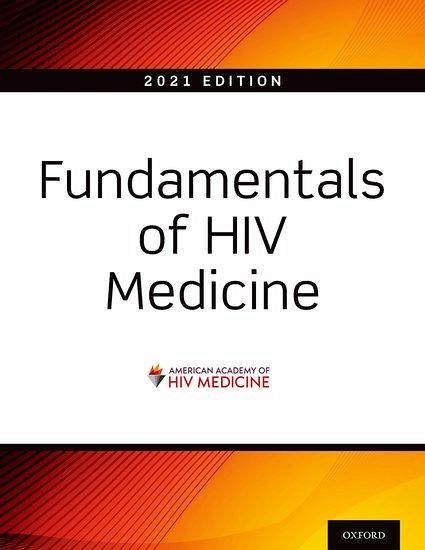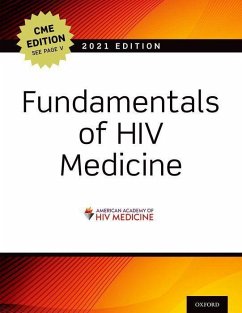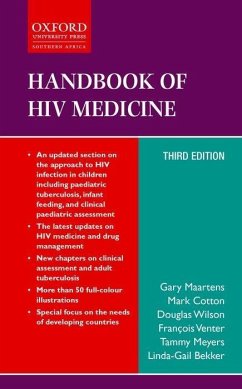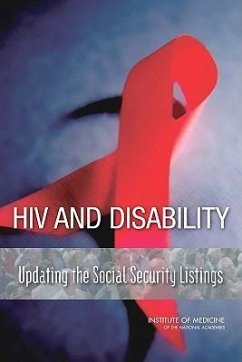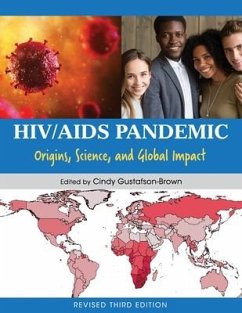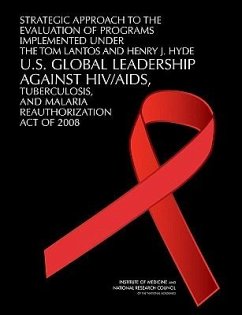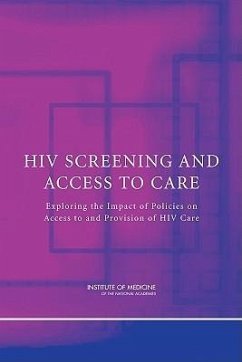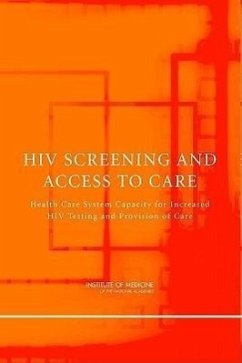W David Hardy
Broschiertes Buch
Fundamentals of HIV Medicine 2021
Versandkostenfrei!
Versandfertig in über 4 Wochen
Weitere Ausgaben:

PAYBACK Punkte
61 °P sammeln!




Fundamentals of HIV Medicine 2021 is the AAHIVM's end-to-end clinical resource for the treatment of individuals with HIV/AIDS. Now updated with HIV workforce strains and PrEP, newly emerging antiretroviral treatment options, and the evolving effects of COVID-19 on HIV care.
About the Editor in Chief: W. David Hardy, MD, currently serves as Adjunct Professor of Medicine at Johns Hopkins University School of Medicine and lives in Washington, D.C. His previous professional experience includes serving as Senior Director of Research at Whitman-Walker Health in D.C. (2015-2018), Chief Medical Officer of Calimmune, a translational science company investigating gene-modified cellular therapies as a potential cure for HIV (2013-2015) and Director of the Division of Infectious Diseases at Cedars-Sinai Medical Center and Professor of Medicine at the David Geffen School of Medicine at UCLA (2002-2013). Early in the AIDS epidemic, he completed a clinical fellowship in infectious diseases/immunology and clinical research at the UCLA School of Medicine under the direction of Dr. Michael Gottlieb, the physician who recognized and reported the first cases of AIDS. Later he also completed a laboratory fellowship in molecular retrovirology with Irvin Chen at UCLA. Dr. Hardy has cared for persons with HIV infection since 1982 and conducted research on HIV and related diseases since 1984. Dr. Hardy currently serves as Chair of the Board of Directors of the HIV Medicine Association (HIVMA) and Chair of the Education Committee of the American Academy of HIV Medicine (AAHIVM). He has worked with several community-based organizations, including AIDS Research Alliance, Alliance for Housing and Healing, Being Alive-Empowering People with HIV/AIDS, Project Angel Food and AIDS Project Los Angeles. About the American Academy of HIV Medicine (AAHIVM): The American Academy of HIV Medicine is a professional organization that supports the HIV practitioners and promotes accessible, quality care for all Americans living with HIV disease. The AAHIVM membership of HIV practitioners and credentialed providers give direct care to the majority of HIV patients in the US. The Academy's HIV-focused professional certifications are the first and only credentials offered domestically and internationally to physicians, nurse practitioners, physician assistants and pharmacists specializing in advanced level HIV care.
Produktdetails
- Verlag: Oxford University Press
- Seitenzahl: 552
- Erscheinungstermin: 23. Juni 2021
- Englisch
- Abmessung: 277mm x 216mm x 33mm
- Gewicht: 1338g
- ISBN-13: 9780197576595
- ISBN-10: 0197576591
- Artikelnr.: 61406068
Herstellerkennzeichnung
Libri GmbH
Europaallee 1
36244 Bad Hersfeld
gpsr@libri.de
Für dieses Produkt wurde noch keine Bewertung abgegeben. Wir würden uns sehr freuen, wenn du die erste Bewertung schreibst!
Eine Bewertung schreiben
Eine Bewertung schreiben
Andere Kunden interessierten sich für



